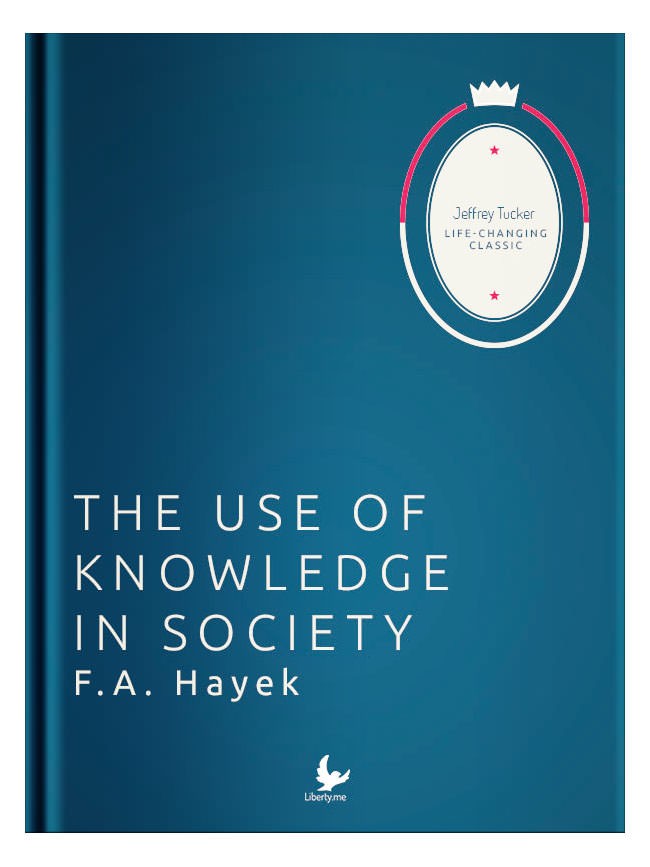
The Use of Knowledge in Society
The Use of Knowledge in Society is an essay that sums up the insights of a lifetime. It is a template for a worldview. It is a source of unlimited amounts of study and reflection. It is an insight that explains vast amounts of the world around us. It is a flash of brilliance, a revelation that millions have missed, a paradigm for understanding the past and future. It is a rebuke to intellectuals from time immemorial and a new way of thinking for true intellectuals of the future. No single essay by Hayek is more important. “The Use of Knowledge in Society” is all that and more.
Knowledge is a good, perhaps the most important good, something vastly more important than all physical property combined. It is the driving force of history, the immortal, sharable, reproducible, malleable substance that has built our world and makes possible the forward motion of history. This essay shows why it is not possible for this knowledge to be produced or used by centralized agents in the civic order but rather must be generated, extracted, and put to use by real actors using real property and interacting with the world around them. Social complexity grows organically from experience of time and place and this can never be produced from the outside regardless of the supposed intelligence of the the planning class.
Hayek’s point here was elaborated on in many books over decades. It comes close to providing a framework for a robust social theory, and even gives a case for understanding why the idea of property rights can never pertain to the world of ideas. Ideas are diffuse and constantly changing; no state can presume to codified them and assign ownership over them.
For years I’ve looked for a passage from the Austrian tradition, whether Hayek or someone else, that clearly explains the nature of knowledge as a non-scarce good and its high value in pushing social and economic progress. Stephan Kinsella and I have found enough material to provide hints and suggestions, small examples and first thoughts, but never anything that really made the point super clear.
We’ve gone to great lengths to spell out the difference between the physical world of scarcity and the world of ideas in which non-scarcity prevails, and suggested that this is a major reason for the great migration to the digital world. I’ve longed for a passage from some Austrian thinker who seemed fully to grasp the idea — not just in hints and suggestions but worked out and precise.

